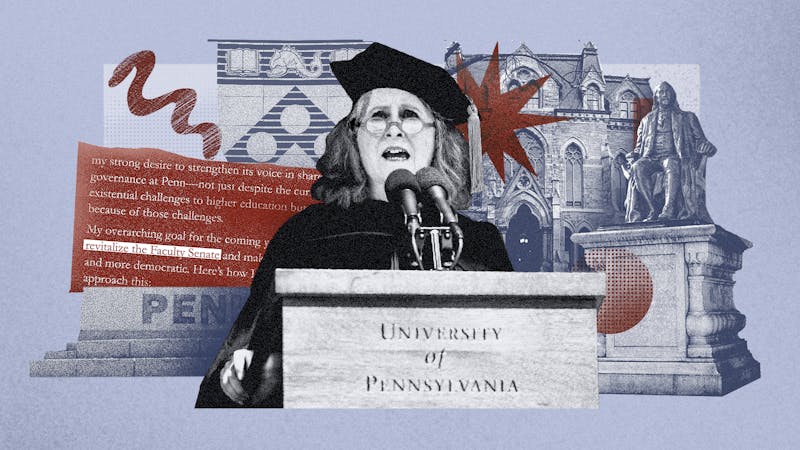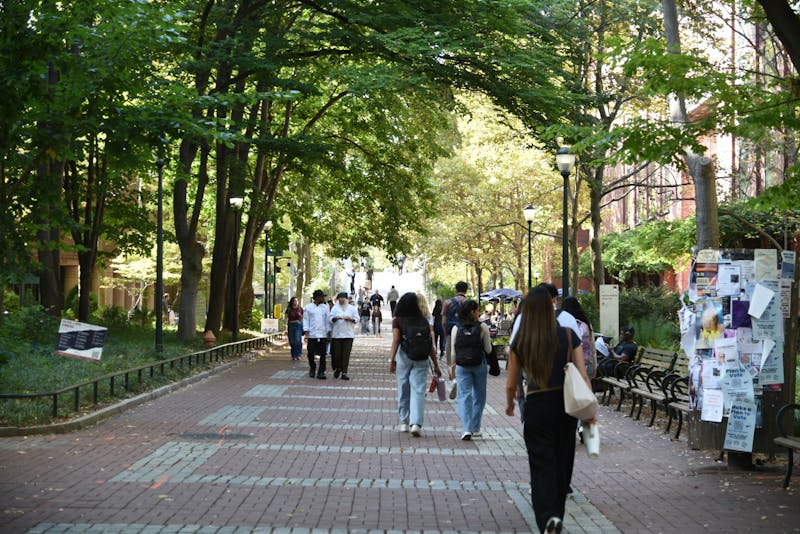
Penn prides itself on being a very diverse Ivy League university, and frankly, it deserves the title. Over half of the student body identifies as a minority, and the University does well in creating communities for various identities. The representation of unique backgrounds is one of my favorite qualities of Penn.
Yet, self-segregation of the student body prevails, undermining the incredible value created by its diversity. The various communities on campus have arguably done “too well” of a job herding similar students and arranging them into defined social groups.
Studies show that it is human nature for us to seek like-mindedness and similar experiences in the people with whom we form relationships. It is easier for us to build trust and comfort amongst people to whom we can relate. A primary mode of commonality is racial and ethnic origin; humans have an ingrained preference to make connections with people from similar backgrounds and with comparable experiences.
Like many affinity groups on campus, Penn’s Black — particularly African — community is remarkable and has been a space where we have found our people. These spaces create an environment where students can wholeheartedly embrace their identities and cultures in ways that didn’t exist for them elsewhere.
However, being a part of these race-based communities also puts students in a box that very strongly influences our social position at Penn. Race has now become a supposed indication of the kind of people we are, who our friends are, and whether we attend predominantly white fraternity parties, historically Black fraternity parties — often dubbed “Black parties” — or other affinity group parties. There is a backward and outdated obligation — largely perpetuated within our own communities — to exist in certain settings and avoid others simply because of our varying identities.
First stepping foot on campus, I was unaware of Penn’s existing social norms. We made friends with those who matched our vibes and shared our interests, eager to penetrate the massive melting pot of students. College was a place where I thought I’d meet and grow close to different kinds of people from various backgrounds, expanding my view of the world. And, while this is true for several students, many are deprived of this experience because of the dividing constructs that so heavily influence the way we interact with one another.
As time went on, we found our communities, and our positions on campus fell into place. Unfortunately, I have never been more aware of my race now and how it affects my social life at Penn. For many of us, decisions that previously required zero thought are now second guessed because of the implications of being a certain race at Penn. There is a developed self-consciousness felt when venturing beyond our “assigned” spaces.
To make matters worse, this self-segregation is further amplified by each group acknowledging and following the fabricated constructs created at Penn. We feel uncomfortable leaving our established circles, so we don’t. And the lines are drawn harder and clearer. We continue to deny ourselves the enriching opportunity to mingle with and learn about our peers who are different from us.
All of this being said, I don’t want to discount those who defy Penn’s social politics. Whether the token minority or a genuine diverse group of friends, there are students who intermix and don’t let the Penn norm define them. However, the notion of resisting these norms is complex in and of itself, as we are quick to criticize the “sellouts” or those who “reject” their identities. We need to understand that intermixing is nuanced and not as black and white as “with them” or “with us.”
Social politics exist in every sphere of our lives, subtly shaping how we interact with each other and our environments. The historically polarizing effect of differing identities has made the notion so deeply rooted in American society and culture that we hardly blink an eye to the norms by which we so casually abide.
As a student body, we need to work to release these norms by which we’ve limited ourselves and dismiss race as the defining aspect of our identities. Penn’s combined and multifaceted culture is too rich to go to waste.
SAMRA LULSEGED is a Wharton sophomore studying finance and legal studies from Castro Valley, Calif. Her email is samral@wharton.upenn.edu.
The Daily Pennsylvanian is an independent, student-run newspaper. Please consider making a donation to support the coverage that shapes the University. Your generosity ensures a future of strong journalism at Penn.
Donate











